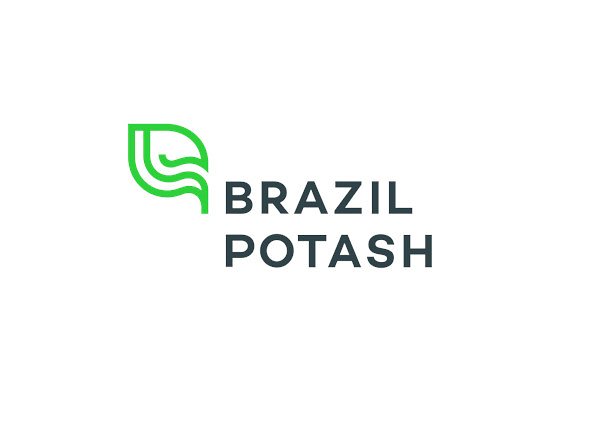
Brazil's New Potash Play: Autazes Project Could Reshape Global Fertilizer Market
A $2.5 billion project in the Amazon is poised to drastically reduce Brazil's reliance on imported potash, potentially disrupting global fertilizer supply chains and offering a model for sustainable infrastructure development.
Brazil's New Potash Play: Autazes Project Could Reshape Global Fertilizer Market
Manaus, Brazil – A $2.5 billion potash mining project deep in the Amazon rainforest is gaining momentum, promising to dramatically alter Brazil’s fertilizer landscape and potentially reshape global supply chains. The Autazes Project, spearheaded by Brazil Potash Corp., aims to reduce the country’s overwhelming reliance on imported potash – a critical nutrient for agriculture – and establish a domestic source of this essential commodity.
For decades, Brazil has been almost entirely dependent on potash imports, with over 95% of its needs met by suppliers in Canada, Russia, and Belarus. This dependence creates vulnerability to price fluctuations, geopolitical instability, and supply chain disruptions. The Autazes Project offers a strategic solution, positioning Brazil to become a significant player in the global potash market.
“The project is a game changer for Brazil,” explained a source familiar with the project’s financing. “It’s not just about reducing import dependence; it’s about ensuring food security and creating a more resilient agricultural sector.”
A Project Rooted in Strategic Partnerships
The Autazes Project isn’t simply about extracting potash; it’s about building a robust and sustainable supply chain. Brazil Potash has strategically forged partnerships with key players in logistics and infrastructure to overcome the challenges of operating in the remote Amazon region.
A landmark agreement with Amaggi, one of Brazil’s largest agricultural companies, secures both offtake commitments for the potash and a crucial transportation network. Amaggi will handle the initial shipment of 2.4 million tonnes of potash annually, utilizing inland waterways to connect the mine with major farming regions. This innovative approach leverages Brazil’s extensive river system, reducing transportation costs and minimizing environmental impact.
“The partnership with Amaggi is essential,” stated a logistics expert following the project. “It provides the infrastructure and expertise needed to efficiently move the potash from the mine to the farmers.”
Further bolstering the project’s sustainability is a $200 million infrastructure deal with Fictor Energia. The company will finance, construct, and operate a dedicated 102-mile power transmission line to supply the mine with renewable energy. This innovative “Build, Own, Transfer” model removes a significant capital burden from Brazil Potash, while ensuring a reliable and sustainable power supply.
Economic Implications and Global Market Disruption
The Autazes Project is projected to have a significant economic impact on Brazil, creating thousands of jobs and generating substantial tax revenue. The project’s feasibility studies indicate a production cost of approximately $87 per tonne, positioning it competitively against imported potash. With current Brazilian potash prices hovering around $493 per tonne, the project is expected to generate substantial profits.
“This project could unlock significant value for Brazil,” said an agricultural economist tracking the project’s development. “It will reduce import costs, stimulate local economies, and enhance Brazil’s position as a leading agricultural producer.”
However, the project’s success could also disrupt the global potash market. Brazil is currently the world’s largest potash importer, accounting for over 33% of global import value. By establishing a domestic source of potash, Brazil could reduce its reliance on imports, potentially impacting potash producers in Canada, Russia, and Belarus.
“The Autazes Project is a significant development for the global potash market,” said a fertilizer industry analyst. “It will increase competition, put downward pressure on prices, and potentially shift trade flows.”
Addressing Sustainability Concerns
Operating a large-scale mining project in the Amazon rainforest inevitably raises sustainability concerns. Brazil Potash has emphasized its commitment to responsible environmental practices, including minimizing deforestation, protecting biodiversity, and engaging with local communities.
The company has implemented a comprehensive environmental management plan, which includes measures to mitigate the impact of mining on water resources, air quality, and soil health. It has also partnered with local communities to develop social and economic development programs.
“We are committed to operating in a sustainable and responsible manner,” stated a source close to the project's ESG strategy. “We are working closely with local communities and environmental organizations to ensure that the project benefits both people and the environment.”
However, environmental groups remain cautious, calling for independent monitoring and strict enforcement of environmental regulations.
“We are concerned about the potential environmental impacts of the project,” said a representative from a local environmental organization. “We urge the government and Brazil Potash to prioritize environmental protection and ensure that the project is developed in a sustainable manner.”
A Model for Future Infrastructure Development?
The Autazes Project’s innovative financing and infrastructure partnerships could serve as a model for future infrastructure development projects in Brazil and beyond. The “Build, Own, Transfer” model employed by Fictor Energia allows Brazil Potash to focus on its core mining operations, while transferring the burden of infrastructure development to a specialized partner. The integration of renewable energy sources further enhances the project’s sustainability.
“This is a smart approach to infrastructure development,” said an infrastructure finance expert. “It allows for risk-sharing, reduces capital expenditures, and promotes sustainable practices.”
As the Autazes Project moves closer to completion, it promises to reshape Brazil’s fertilizer landscape and offer a new model for sustainable infrastructure development. The project’s success will depend on continued collaboration, responsible environmental practices, and a commitment to creating lasting benefits for local communities.
Key Takeaways:
- The Autazes Project aims to reduce Brazil’s reliance on imported potash and establish a domestic source of this critical nutrient.
- Strategic partnerships with Amaggi and Fictor Energia are crucial to the project’s success.
- The project could disrupt the global potash market and reshape trade flows.
- Responsible environmental practices and community engagement are essential for long-term sustainability.
- The project’s innovative financing and infrastructure partnerships could serve as a model for future development projects.
